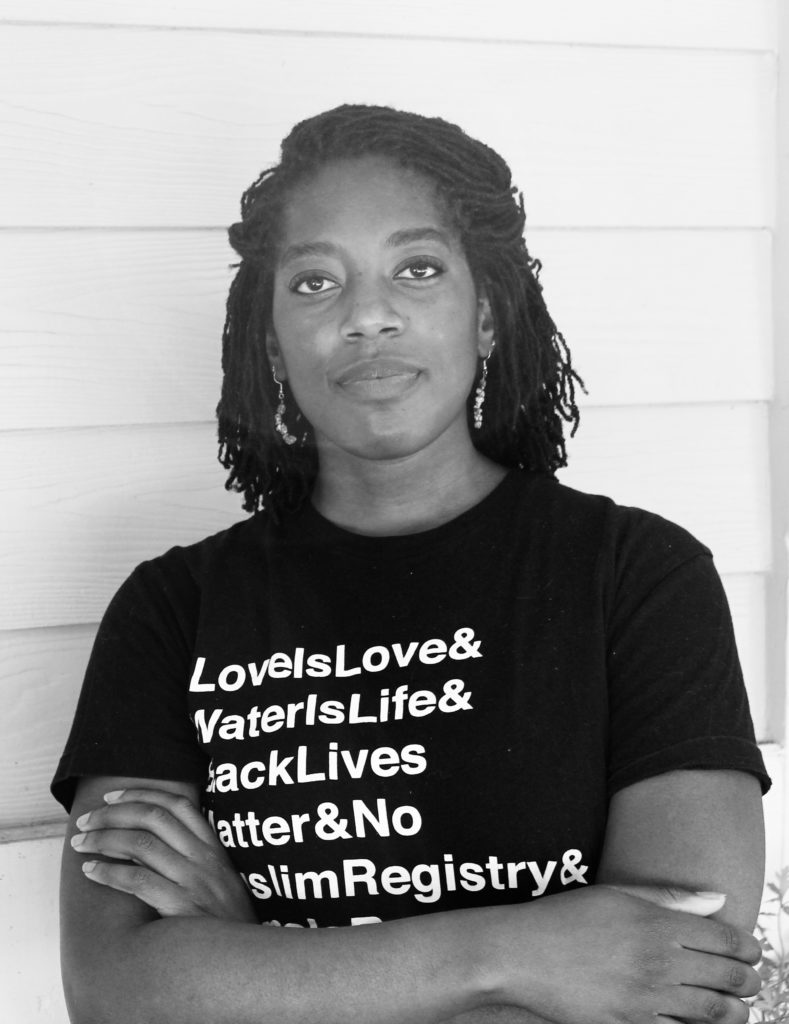Student Editor’s Column
shola shodiya-zeumault
This academic year has truly been a difficult one for so many of us. Throughout the year, we have grieved (and continue to grieve) the loss of loved ones to COVID-19, subsequent economic hardships, and unrelenting fatigue amidst pressure for productivity. We continue to grieve the ongoing murders of Black people, Indigenous erasure, anti-Asian violence and hate crimes, and an ever-increasing sentiment that people of color are not safe on the lands that they have cultivated and loved. Fires, storms, and record heat waves have reminded us of the violence enacted on the Earth, and many of us live with the anxiety and the lived realities of climate change and environmental degradation. Indeed, the year has left many of us feeling exhausted and depleted. I admit that I have found it difficult at times to engender hope in a just future. And yet, the history of resistance to racism and marginalization in this country makes evident the loving reliance that BIPOC and other marginalized communities have had on each other and the benefits of these alliances on our wellbeing. Time has shown us that active and fruitful resistance to oppression is possible through coalition building, and that our coalitions make collective liberation possible. I feel very grateful for Division 45 and the constant reminders of the ways that we work toward collective liberation despite our differences in identities and backgrounds. This Spring 2021 FOCUS highlights our resistance, encourages us to continue forming meaningful alliances against oppression, and urges us to look to community healers for reminders of the ways that our communities have always sought to heal ourselves- long before the colonial influence of western psychology. As such, we are honored to present this edition, as each contribution is both a reminder of the challenges we have faced this year, and a call for hope in the future.
First, Centering Community Healing from a Warrior’s Path Task Force Lens, written by Kristina C. Mendez and Zeynep Demir, asks us to remember indigenous forms of healing such as storytelling. Wisdom and love are embodied in their writing, and they encourage us to bring both our ancestral wisdom and love for our communities to our work. Kevin Cokley, in his President-Elect column urges us to persist in solidarity against racial violence, and reveals his presidential theme for the upcoming year- a focus that is critically needed in this time. In his Past-President’s column, Art Blume reflects on the nationwide discussion and plan to return to “normal” following the devastation of COVID-19, without the acknowledgment of the ways in which “normal” has involved the systematic destruction of BIPOC communities and the Earth. He asserts, “From an Indigenous perspective, as long as human needs are placed ahead of right relations with the world, radical healing will be transitory”. Keoshia Harris authored the graduate student representative column, which provided many reasons to celebrate and honor Division 45 students who have persisted in their studies and research, as well as community activism and advocacy, during an incredibly difficult year. We are also excited to feature Gordon Hall’s statement of his vision as the APA Council Representative, where he discusses the work he has already engaged as well as his future plans that will facilitate his goals of “diversifying the field” and bringing “attention and resources to mental health disparities”. Finally, Natalie Davis has shared with us a special interview with Dr. Joseph E. Trimble, which was first published in The Peace Psychologist.
As any true call to justice and action, this edition is both sobering and inspiring. Most importantly, each contribution reminded me of our strength as a community, and such strength is indeed hopeful. Thus, Carissa and I are excited to present to you the Spring 2021 edition of FOCUS, which we hope can serve as a reminder of the ways that we, as a community, can continue to work toward collective liberation. Now more than ever, it is time to remind ourselves of the coalitions we have built to resist racism and bring about liberation in our communities. We hope that this edition can serve as such a reminder.
Focus Spring/Late Summer 2021
- Spring 2021 Celebration of Students
- From the Editor’s Desk
- Graduate Student Representative’s Column
- Vision as Division 45 APA Council Representative
- Student Editor’s Column
- Special Interview with Accomplished Psychologist, Dr. Joseph E. Trimble
- Past President’s Column
- President-Elect’s Column
- Centering Community Healing from a Warrior’s Path Task Force Lens
